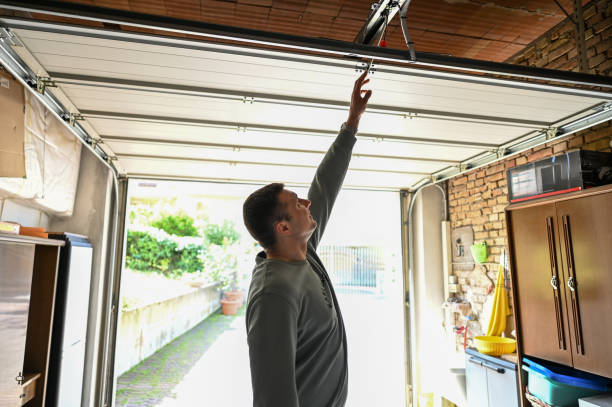When it comes to residential garage doors, choosing the right material is crucial for both repairs and replacements. The material of your garage door not only affects its appearance but also its durability, maintenance requirements, and overall performance. With a variety of materials available in the market, it can be overwhelming to make a decision. This article will guide you through the process of selecting the most suitable material for your residential garage door.
Wooden Garage Doors
Wooden garage doors are known for their classic and timeless appeal. They can enhance the curb appeal of your home and add a touch of elegance. However, wooden doors require regular maintenance such as painting or staining to protect them from the elements. They are also prone to warping, rotting, and termite damage if not properly cared for. Despite the maintenance involved, many homeowners opt for wooden garage doors for their aesthetic value.
Steel Garage Doors
Steel garage doors are durable, low maintenance, and relatively affordable. They are available in a variety of styles, colors, and finishes, making them a versatile choice for residential properties. Steel doors are resistant to warping, cracking, and rotting, making them ideal for areas with harsh weather conditions. They also provide better insulation compared to wooden doors, which can help in reducing energy costs. Overall, steel garage doors are a practical option for homeowners looking for a balance between durability and affordability.
Aluminum Garage Doors
Aluminum garage doors are lightweight, rust-resistant, and modern in appearance. They are a popular choice for contemporary homes due to their sleek design and customization options. Aluminum doors are low maintenance and do not require painting, making them a convenient choice for busy homeowners. However, they are not as durable as steel or wooden doors and may dent easily. Aluminum garage doors are best suited for temperate climates where they are less likely to be exposed to extreme conditions.
Fiberglass Garage Doors
Fiberglass garage doors are a low-maintenance alternative to traditional wooden doors. They are resistant to dents, cracks, rust, and warping, making them a durable option for residential properties. Fiberglass doors can mimic the look of wood and are available in a variety of finishes. They are also lightweight, which puts less strain on the garage door opener. However, fiberglass doors may fade or become brittle over time due to exposure to sunlight. They are suitable for coastal areas or regions with high humidity levels.
Vinyl Garage Doors
Vinyl garage doors are durable, energy-efficient, and resistant to dents, rust, and fading. They require minimal maintenance and can withstand harsh weather conditions without deteriorating. Vinyl doors are available in various colors and styles, making them a versatile choice for homeowners. They are also quieter compared to metal doors, which can be a consideration for those with living spaces above or adjacent to the garage. While vinyl garage doors may have a higher upfront cost, they offer long-term savings in terms of maintenance and energy efficiency.
Conclusion
Choosing the right material for your residential garage door repair is essential for its longevity, performance, and aesthetics. Consider factors such as durability, maintenance requirements, insulation properties, and budget when selecting a material for your garage door repair or replacement. Each material has its own pros and cons, so weigh your options carefully before making a decision. Consult with a professional garage door installer to get expert advice on the best material that suits your needs and complements your home’s architecture. With the right material choice, you can enhance the functionality and curb appeal of your residential garage door for years to come.









